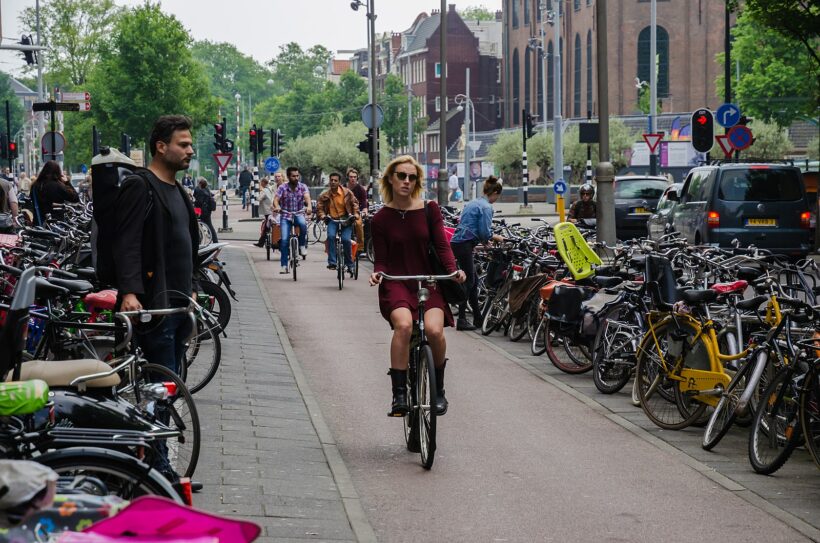Cycling advocacy groups have this month been praising impending developments in inter-institutional European frameworks centred on the creation of a homogenous European cycling plan.
Speaking recently at the 2022 Cycling Summit in Copenhagen, Frans Timmermans, Executive Vice-President of the European Commission and head of the Green Deal, made a major announcement: work is set to commence with the European Parliament on the establishment of a Joint Cycling Declaration.
The Declaration would see the European Commission and European Parliament cooperate in order to establish a more coherent and comprehensive European cycling strategy in which disparate areas of cycling legislation and policy would be unified.
Timmermans’ announcement comes after six countries, spearheaded by Belgium earlier in June, demanded “proper action plan at the EU level” centred around the encouragement of cycling in Europe. Cycling legislation has until now typically been incorporated into a variety of separate national, regional, and international policies, such as those focused on mobility.
A more uniform European strategy will arguably unlock the financial and regulatory potential of the EU by increasing its institutional efficiency. Such an initiative could therefore facilitate higher levels of standardisation between cycling policies in individual EU member states.
The announcement of a Joint Declaration also signifies a more serious recognition within European institutions of the role cycling could play in supplementing advances towards major European goals and targets. Its production would formally identify cycling as a distinct sphere in which such goals can be reached.
Campaigners point to the potential of cycling for combatting major social, environmental, and political problems presently facing Europe. The European Cycling Federation (ECF) affirmed its approval for the increased recognition of cycling as a potential contributor to alleviating problems such as climate change, inequality, sustainable economic development and public health. Advocates at Cycling Industries Europe (CIE) also highlight the role cycling could play in offsetting Europe’s dependence on Russian energy.
In his speech, Timmermans promised a more serious acknowledgement of cycling’s potential and an incorporation of this recognition into future policymaking across a variety of European issues. Referring to the responsibility of the EU to recognise cycling’s importance, he stated that everything “can and should, whenever it’s possible, have a cycling dimension.”
Advocacy groups such as the ECF and the CIE have therefore welcomed both the initiative and Timmermans’ parallel pronouncement of a forthcoming “cycling revolution”, suggesting that these constitute major institutional advances in the development of a sound European cycling plan. The ECF specifically has offered its services in the development of the Joint Declaration, having made itself available for consultation.
Both organisations are enthused by the Declaration’s potential for facilitating higher levels of investment in cycling infrastructure projects and programmes that create incentives for people to begin cycling. They hope that the European institutions will deliver on their promises, agreeing with Timmermans in his statement that “a green Europe will be a cycling Europe.”






